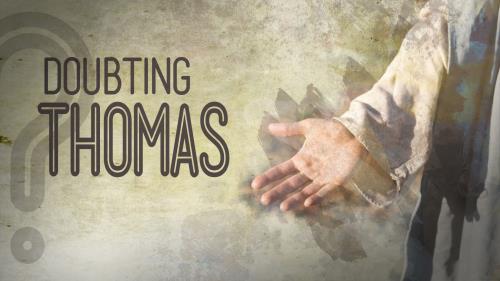-
Living Through Life's Dry Situations
Contributed by William Wyne on Nov 28, 2017 (message contributor)
Summary: The Word of God is the solution to get us through our desert situations
The wise sage King Solomon wrote in his book in Ecclesiastes chapter 3 the idea about life in terms of seasons. He apparently understood that life was a continuous series of seasons. In verse 1 he said, “To everything there is a season and a time to every purpose.” The word season denotes a fixed, definite portion of time. It has the idea of being fixed, but it also carries the idea of temporary fixing. Then he used the word time which carries the idea that it has a beginning and an ending. Between the cradle and the cemetery we will experience the seasons (the portion of times and the accompanying of what the seasons brings). When you experience the seasons there are elements that come with the seasons. The seasons of winter consists of specifics elements that makes winter winter (ice, lower temperatures, etc.). Summer has its accompanist (heat, mosquitoes, bugs, watermelons, etc.) Whatever comes your way in terms of seasons, do not think that the seasons are just picking on you. When the seasons arrives at your place, trust me it’s probably just leaving someone else, and when it’s done with you it will be stopping at someone else’s residence.
Someone said that life is like a huge time piece (clock), and the hands of the clock are timed by a divine clockmaker who allows the hours and seconds of the seasons to visit us. Solomon speaks of the season in an interesting way. He speaks of them initially as favorable, and then unfavorable, as positive and then not so positive, as good and then not so well.
A time to be born (favorable), and a time to die (not so favorable), a time to plant (positive) and a time to pluck up that which was planted (negative), a time to laugh, and a time to weep, a time to dance, and a time to mourn, a time to get, and a time to lose. Life is a cycle of seasons, a cycle where we experience and encounter the nuances of testings, stretching, stirrings, static, perhaps even stagnation and starving, or just staring at the seasons of our struggles.
There are seasons when life becomes dry and draining, life seems to be dragging us to be dutiful, rather than being driven by desired destiny. The center of life seems to be more about what one has to do and not what I want to do. It’s the dry season of life.
It’s like being in a hitter’s slump in baseball. You go to the batter’s box day after day and you just can’t get a hit. You find yourself 0 for 15, that means, you’ve been up 15 times and either you are striking out at bat or when you do make contact with the ball, you hit it right to where a defender is positioned and you are out. Dry season.
In the dry season you have no real joy, no real peace, and no real excitement. The oil of gladness is no longer in your vessel; the spirit of jubilation is nothing more then the scent of where it used to be. Dry season.
There nothing in the bottle, just the odor of where it was. Dry season.
The languages of your body are indicators that the dry season has set in. Some how, the switch or the knob that would allow you to change the contrast of your picture of life that you view to a brighter brightness, the knob is either gone or broken. And you can not even get a brighter contrast. All that is there is either a hole where the knob used to be or it’s now dysfunctional. Dry season.
The future looks darker than the present… Dry season... The only sound you hear is the sound of your own pain, fears, frustration… Dry season….
But here is the good news of the gospel. The God I serve can sustain you thru the dry season. The God I serve has a drenching for you when the Dry season is over. The God I serve can send a downpour when the season is ended. You can get thru the dry season. In this story before us today we see God sustaining his servant thru the dry season. This story goes back to chapter 17 when God commanded the prophet Elijah to go to Ahab the King and announce that no rain or dew would come except by my word. That word was strong and surely stirred the spirit of Ahab and Jezebel. The Lord perhaps told him to flee, sent him down to the brook and had a raven to bring him his food, but because there was no rain, the brook dried up and perhaps the raven died or could not find food, the raven stopped coming. But God sent him to a widow in Zarephath who was picking up sticks and the famine had impacted her, she had only enough for a meal and then death was eminent for her and the boy. But she obeyed the word of the Prophet by giving him some bread first. And the scriptures say they ate for many days, as a matter of fact they ate until the rain came which takes place at the end of chapter 18.

 Sermon Central
Sermon Central



